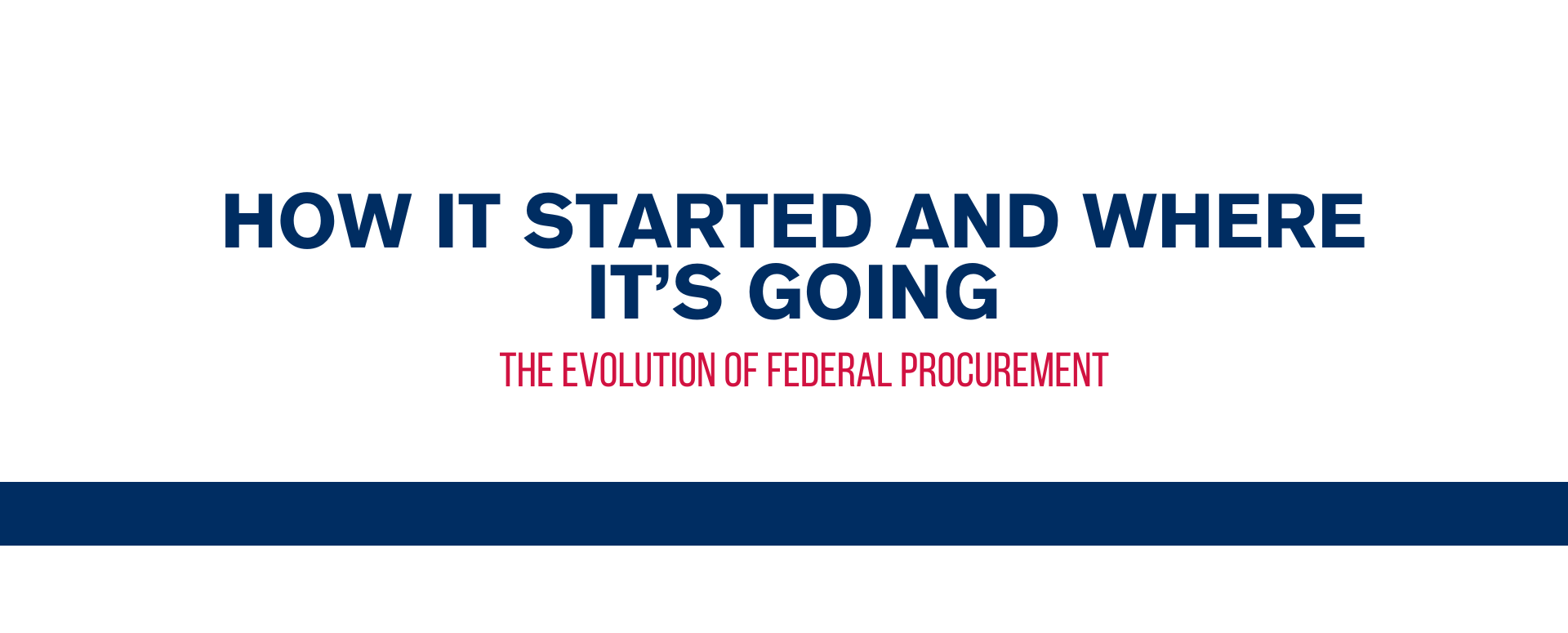 Since its inception, the United States government’s need to acquire goods and services has been as essential to its operation as a morning cup of coffee is to most Americans. The history of federal procurement reflects the nation’s evolution, encompassing shifts in technology, policy, and economic priorities.
Since its inception, the United States government’s need to acquire goods and services has been as essential to its operation as a morning cup of coffee is to most Americans. The history of federal procurement reflects the nation’s evolution, encompassing shifts in technology, policy, and economic priorities.
Federal Procurement roots are traced back to when the primary focus was on acquiring goods necessary for national defense and infrastructure development. During the 19th century, key purchases included military hardware and weapons, and telegraph communication services. Purchasing increased with the rapid expansion of the nation, particularly when the Union Army’s procurement efforts were essential for sustaining its Civil War operations.
The 20th century witnessed significant developments in federal procurement practices, with needed large-scale government contracts during World War II. In addition to military hardware and weapons, fuel and energy sources appeared top on the purchasing list. This laid the groundwork for modern procurement practices, including competitive bidding processes and standardized contracting procedures.
The post-war period established key agencies such as the General Services Administration (GSA), and the frameworks aimed at ensuring transparency and fairness in procurement processes. The Cold War era included massive investments in defense technology and infrastructure projects. Aerospace technology, space exploration and EPA measures created new federal buyers needing goods and services from American businesses.
The late 20th century witnessed the digital revolution, revolutionizing federal procurement processes. Computerized systems and electronic procurement platforms streamlined operations, enabling greater efficiency and transparency in government contracting.
The 21st century sees a new procurement phase characterized by digitization, automation, and an increased focus on sustainability and innovation. Emerging technologies, such as artificial intelligence, are reshaping procurement practices. The expansion of Medicare and Medicaid is increasing purchases from healthcare providers and medical supply companies, and consulting services in the tech field are now on the procurement list.
Looking forward, the emphasis on increased participation of small businesses, minority-owned enterprises, and disadvantaged groups in government contracting is taking hold. Advancements in technology and regulations will continue to shape procurement processes. As the government addresses emerging challenges and pursues new opportunities, procurement will remain a critical function, adapting to meet the evolving needs of the nation.
-Beth Freeman Myers
Sr Business Consultant
Idaho APEX Accelerator






